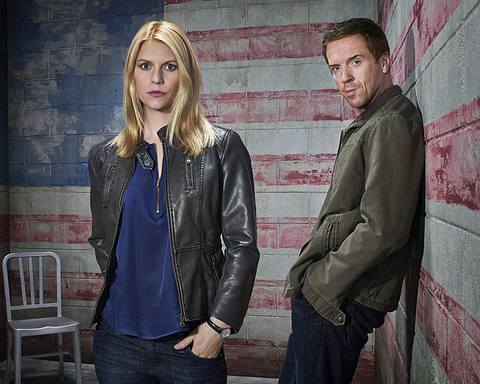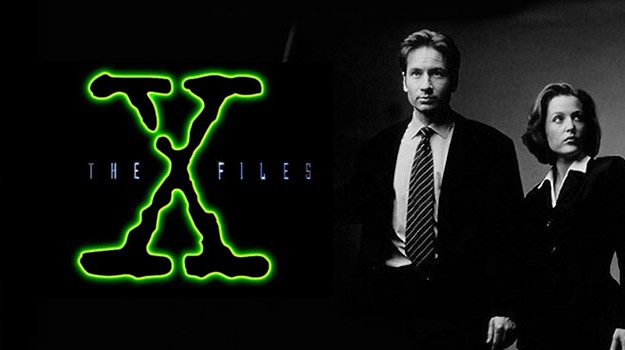*This article contains mild spoilers for The X-Files and Homeland*
Pilot episodes are very important in setting groundwork for the future potential of a television show. A show can sometimes recover from a weak pilot but, more often than not, if a pilot doesn’t at least show the strengths of the premise, it gets cancelled by the end of its first season. The pilot episode is the writer essentially pitching the idea to not just the studio but an entire audience in the hope the dynamics of the show will grab their attention. Here are the important aspects to creating a great pilot. I would argue that these features legitimately need to be in the script in the hope that the audience will watch the next episode. As examples to illustrate my points, I will use the pilot episodes of The X-Files and Homeland – two shows that I think really lay the foundation for what was to come and highlighted their unique selling points with strong first episodes.
1) ESTABLISHING THE WORLD: This first aspect was particularly important for The X-Files to get right because so much of what it did lay within the paranormal. It needed to create a world that thrived on the unknown and the need for answers. In the very first scene within the Bureau, it clearly shows the FBI’s stance on Mulder’s X-Files investigations – they believe him to be “spooky”, with Scully’s main aim to report to them in the hope they would be able to discredit his findings. The show, of course, thrives on the fact that Mulder is actually correct about the paranormal activity approximately 99% of the time. However, after the initial introduction to draw the audience in, the fact that the following scenes set up the world as it functions within the Bureau is significant and cannot be underestimated. It helps ground the world of the paranormal, showing that the characters in question have stakes in the outcome of Scully’s findings. There is office politics layering the investigations throughout the show that only become more apparent and significant as it progresses. Without Scully’s initial aim, there would be less tension between the two central characters which is an important aspect we will discuss later.
With Homeland, the first thing we see is Carrie on a mission, attempting to save a life of a potential informant. It not only begins the show with a tense, taut dialogue scene, designed to draw the audience in, but it clearly highlights that the world we are entering is one involving life and death. The stakes are always high in Carrie’s line of work. With this in mind, it becomes abundantly clear within the first scene that any form of conflict or screw up could result in the ending of a life. Carrie is a flawed, righteous, frustrated individual, working within a system that arguably doesn’t want her to succeed. It’s an excellent performance by Claire Danes and, in selling the character, it effectively builds a world that wants Carrie to fail. It not only shows the risk involved but makes the audience root for her, which only makes any more potential mistakes all the more damning and conflicting for the audience and the character itself. It establishes a world that is unforgiving and ruthless which only makes Carrie’s desperation all the more acceptable and relatable to the audience.

2) CHARACTER DYNAMICS: A show lives and dies on the dynamics of its central characters and it’s here that The X-Files truly excels. Carter rightfully decided to keep it simple. In many procedures nowadays, there’s a whole host of characters that seem to fade into the background. The X-Files kept it short and sweet and, while there are periphery characters (like Skinner and the Cigarette-Smoking Man) that become more prevalent later on, the pilot is adamant on the show’s two most important assets: Mulder and Scully. Mulder is the believer, Scully is the sceptic. Many shows since have attempted to create a dynamic as rich and multi-layered as theirs but few have been able to master it. Why? Simple: even in the pilot, there’s an underlying sense of respect that permeates the actions of both characters. They may not agree on many of each other’s opinions, but they respect one another. Oh, and the sexual tension between them is out-of-this-world (pun very much intended.) The potential for the characters and all the various ways they could grow is established in the first episode and only deepened when other characters are introduced later. It was an old school but effective method: focusing on the two most important characters and then branching out once the solid foundation had been established. For all the issues the show experienced in its later seasons, it frankly wouldn’t have become one of the shows of the ’90s without this core dynamic.
I would personally argue that Carrie and Saul are the heart and head of Homeland – Saul, the head, a logical thinker, one that is pragmatic and attempts to not be swayed by emotion, Carrie, the heart, one that thinks on her feet and lets her personal investment cloud her judgement. The first episode puts much investment into this relationship and it pays dividends not just in this episode, but in future seasons. It becomes clear quickly that Saul does actually have a soft spot for Carrie, which is what makes the sexual advance made by Carrie in desperation later on in the episode all the more devastating and heart-breaking. For the next few episodes, Saul is so disgraced by her behaviour that he struggles being in the same room as her. As Carrie drowns her sorrows in a bar, she admits that she betrayed her “best friend.” Within this dynamic, Homeland highlights that it isn’t like other television shows – there is sex within the show but, in the one scene where Carrie hints at potentially using sex as a way to get what she wants, it is rightfully treated as a transgression, a betrayal. It establishes a dynamic that is unique in that it is often not portrayed with such subtlety and genuine regret: Saul is a father figure to Carrie and the show highlights that it won’t simply wave away Carrie’s actions. It’s a show that makes sure you understand the consequences of her actions, whether you agree with them or not.
3) TENSION: I need to start with Homeland with this one because I’ve barely mentioned the most tense aspect of the entire show: Brody. Regarding whether Brody is a terrorist or not, the show wisely sidesteps the issue for most of the first hour, only potentially confirming Carrie’s suspicions within the final few minutes. Instead, most of the hour deals with Brody’s psychological and physical damage suffered from his eight years of being brutally tortured. It humanises a character who Carrie is adamant is a terrorist. The show asks a fascinating question upon doing this: ‘Even if Carrie is right, shouldn’t we still pity this man?’ In flashbacks, we see the level of torture he has had to withstand, and Homeland doesn’t attempt to shy away from asking difficult questions. The tension is caused through two strong, independent characters: Brody and Carrie, and only develops further as the first season progresses. For the premise of the show, the audience are already pretty adamant that Brody must’ve turned, otherwise, there simply wouldn’t be a story to tell. However, the tension is caused because the show unflinchingly shows that there are no easy answers; that, while it certainly doesn’t condone any terrorist action that Brody may commit, it also shows that Brody had unspeakable, emotionally devastating things happen to him which has resulted in him becoming a broken man. Again, as I’ve previously stressed, the tone in the pilot is designed to grip the audience and, in that, Homeland‘s pilot is a resounding success.

As for tension in The X-Files, it’s all caused from the different outlook of both characters. In having Mulder a firm believer and Scully a sceptic, it creates a constant divide that naturally creates tension within each case. The important aspect to bear in mind is that Scully is the audience’s eyes and ears here, particularly in the first episode. Scully is introduced before Mulder and we essentially seem to see most of the episode through her eyes, not Mulder’s. This is significant in that, even if Mulder is ultimately right, the show’s deftest touch is in the audience still having respect for Scully. This is because Scully, obviously, should actually be right most of the time and often states things in disbelief that much of the audience would also verbalise. We sympathise and understand Scully’s perspective because the show takes the necessary precaution to make sure we appreciate the rationale she brings to often bizarre and terrifying cases. The tension then comes from Scully trying to ground Mulder while Mulder is attempting to get Scully to believe him. The tension is derived from how often they can be at odds with one another while still clearly caring about one another’s wellbeing.
These three aspects are simply examples of elements you need to make a great pilot; essentially all being ways to build effective characterisation. Obviously, things like pacing, dialogue and a gripping plot are also important but I would simply argue that establishing the world, creating effective character dynamics and building tension to hint at where the show could go beyond the pilot are just as effective because they help draw the audience in.
And, yes, I am back and will be posting quite a lot of new content over the next few months, if not longer. Thanks for reading!